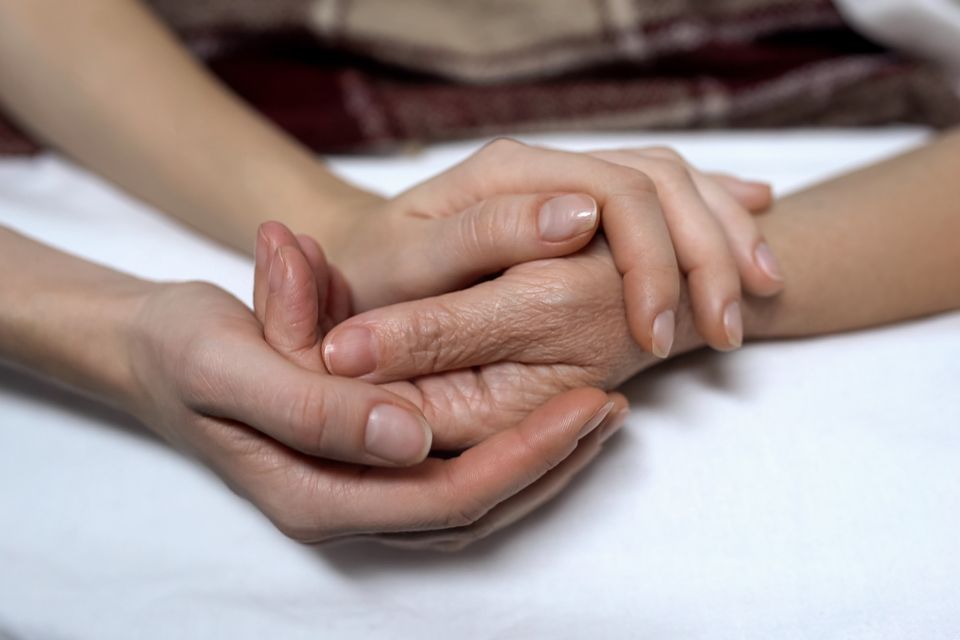Government to be asked to respond to report calling for assisted dying laws
Getty Images
The Government will be asked to respond to a new report from an Oireachtas committee today recommending voluntary assisted dying for terminally ill people.
However, the report from the Oireachtas committee on assisted dying is likely to be parked by this Government and it will be up to its successor to decide on what kind of legislation, if any, should be drafted.
The report, which followed months of consultations with a broad range of groups from here and abroad, says assisted dying legislation should be introduced where a person is diagnosed with a disease, illness or medical condition which is incurable and irreversible, advanced, progressive and will cause death within an expected six months.
In the case of a neurodegenerative disease, illness or condition, it was recommended the expected time to live could be twelve months.
The illness has to be causing suffering that cannot be cannot be relieved in a manner that the person finds tolerable.
The report comes from the committee chaired by Kerry TD Michael Healy Rae.
Mr Healy Rae indicated yesterday he would put forward a minority report today advocating against the introduction of assisted dying.
He was among a minority in the committee who opposed it along with Senator Ronan Mullen and Deputy Robert Troy.
However, it is the report of the committee which will be presented with recommendations for Government action.
Several groups, including pyschiatrists and palliative care consultants were strongly against its introduction.
Legislation would be needed before it could proceed as well as strict regulation.
The committee also recommends that a person who is physically incapable of assisted dying themselves should be allowed to ask a doctor to administer the procedure.
Anyone who believes they are eligible for assisted dying would need to apply before it was granted with two doctors overseeing the decision.
Doctors who want to opt out would be allowed do so under a conscience clause.
The campaign group End of Life Ireland said there are “hundreds of people living with terminal illness or enduring unbearable suffering all over Ireland. Many of these people, we know, would like the choice to end their lives when it’s right for them.
"They also want to know they could have help from their loved ones without the awful prospect of those people facing any legal action for helping them,” they added.
The Irish College of Psychiatrists expressed concerns about its introduction saying attempting to establish an absolute right to bodily autonomy by legalising assisted dying may undermine other individual and group rights, and, by creating one class of people for whom life is expendable, that particular view may be extended by society to all groups possessing such attributes ,such as permanently disabled people..
Join the Irish Independent WhatsApp channel
Stay up to date with all the latest news









